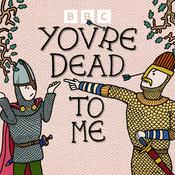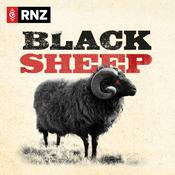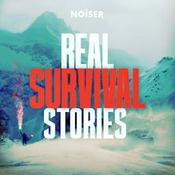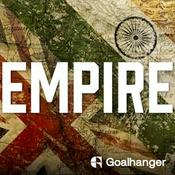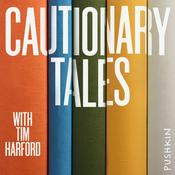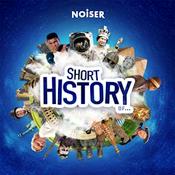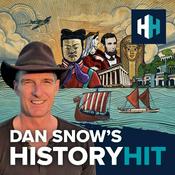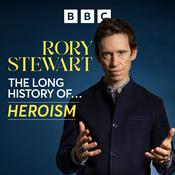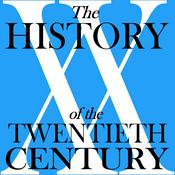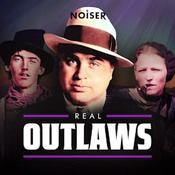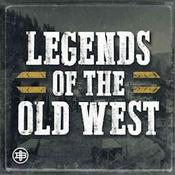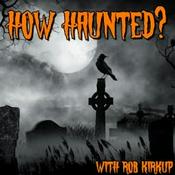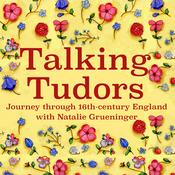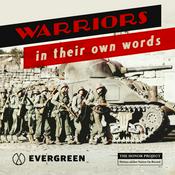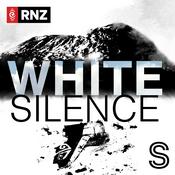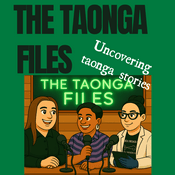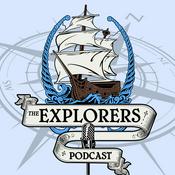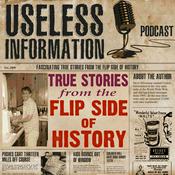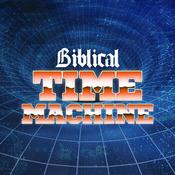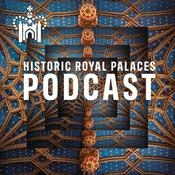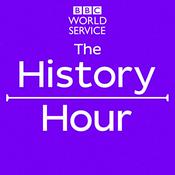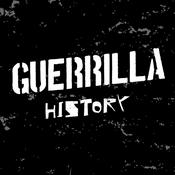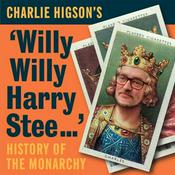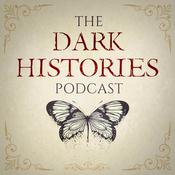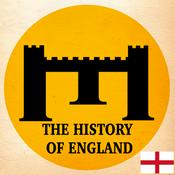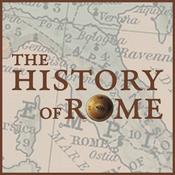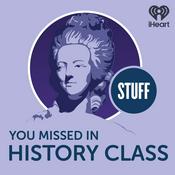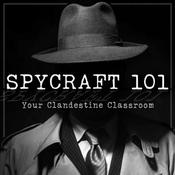91 episodes
- On 6th August 2025 at National Library, Gareth Watkins and Dr Roger Smith from PrideNZ and Walk Tours NZ presented their work using off-the-shelf AI software to bring to life their oral history recordings of Cuba St, Wellington New Zealand.
Drawing on the PrideNZ archival audio collection, A Rather Queer Cuba Street was a site-based event that combined eye-witness audio clips, AI-generated human avatars, and live presentation to create an engaging, feature-rich historical experience.
From AI transcriptions of oral histories to AI-assisted identification of engaging quotations from long-form interviews, and the creation of video elements featuring AI human avatars.
Gareth Watkins is the founder and editor of PrideNZ. He, along with Roger Smith, co-founded Walk Tours NZ in 2017 – offering free community LGBTIQ+ walk tours around Wellington. Dr Roger Smith is also a contributor to PrideNZ and a past Trustee of the Lesbian and Gay Archives of New Zealand (now Kawe Mahara).
Download a transcript of this talk (PDF)
Download slides used for this talk (PDF)
A video of the full talk is available on YouTube
Note some of the audio played during the recording process does not always sound as good in our playback, we apologise for this. - In this Public History Talk recorded at the National Library on 4 June 2025, podcast producers William Ray (RNZ) and Kirsten Johnstone (Popsock Media) explored the art of creating captivating history podcasts, sharing storytelling and audio techniques from series like Black Sheep, The Lake, The Aotearoa History Show, Te Rauparaha Kei Wareware and The Magpie House.
They discussed the delicate balance of distilling complex history for an engaging auditory experience, using sound design and music to enhance storytelling, and offered insider tips and tricks from their award-winning work.
About the speakers
Kirsten Johnstone (Ngāi Tahu / Pākehā) co-founded award winning podcast production company Popsock Media in 2020. She honed her craft as a producer, editor, host, and content creator at RNZ.
William Ray (Pākehā) is an award-winning podcast producer at RNZ. He primarily works on history programming including Black Sheep and the Aotearoa History Show.
Download a transcript of this talk (PDF) - In this podcast, Catherine Comyn reframes the financial colonisation of Aotearoa — a history of the joint stock company, a speculative London property market that romanticised the distant lands of indigenous peoples, and the calculated use of credit and taxation by the British to dispossess Māori of their land and subject them to colonial rule.
Finance was at the centre of every stage of the colonisation of Aotearoa, from the sale of Māori lands and the emigration of early colonists to the founding of settler nationhood and the enforcement of colonial governance.
Catherine’s Ockham-longlisted book, The Financial Colonisation of Aotearoa (ESRA, 2023), has been hailed by Jane Kelsey as “the most stimulating book I have read on the colonisation of Aotearoa from the exciting new generation of scholars”.
Catherine tells the story of the financial instruments and imperatives that drove the British colonial project in the 19th century. By illuminating the centrality of finance in the colonisation of Aotearoa, Catherine not only reframes the understanding of this country's history, but also the stakes of anti-colonial struggle today.
Catherine Comyn (Ngāti Ranginui, Pākehā) is a PhD candidate in International Political Economy at King's College London. Her research focuses on finance capital and colonisation, and possibilities for their overcoming.
The talk was recorded live at the National Library of New Zealand on 28 May 2024, as part of the Public History Talks series, a collaboration between the Alexander Turnbull Library and Manatū Taonga Ministry for Culture and Heritage.
Download a transcript of this talk (PDF) - In this podcast, Mark Derby talks about his recent book Frontline Surgeon: New Zealand Medical Pioneer Douglas Jolly, published by Massey University Press/University of Nebraska Press. Frontline Surgeon and related publications record New Zealand’s response to the Spanish Civil War, and its present-day significance.
Central Otago-born doctor, Doug Jolly, pioneered mobile emergency surgery during the Spanish Civil War. His surgical manual, based on battlefield experiences close to the front line, was widely used in later conflicts. Mark makes a case for Dr Jolly to be recognised as one of the most influential medical figures of the 20th century.
Frontline Surgeon is part of a long-running, unplanned, and ongoing project to record New Zealand's response to the Spanish Civil War and its present-day significance. The project began in 2006 when Mark edited a book of seminar papers — Kiwi Compañeros: New Zealand and the Spanish Civil War (ed. Mark Derby, Canterbury University Press, 2009.) This appeared in a Spanish translation as Compañeros Kiwis — Nueva Zealanda y la Guerra Civil Espanola (University of Castilla- La Mancha, 2011).
Mark later discovered a cache of letters by Christchurch nurse Dorothy Morris in the Alexander Turnbull Library. This resulted in a full-length biography, Petals and Bullets: Dorothy Morris, New Zealand Nurse in the Spanish Civil War (Potton and Burton Publishing / Leeds University Press, 2015.)
Mark has also written about this history for the Virtual Museum of the Spanish Civil War, a Te Ara-like online resource. The British publisher Bloomsbury has been recently contracted to publish a book based on the Virtual Museum’s content.
In this talk, Mark speaks about these inter-related projects, and how they were produced.
Virtual Museum of the Spanish Civil War
The talk was recorded live at the National Library of New Zealand on 7 August 2024, as part of the Public History Talks series, a collaboration between the Alexander Turnbull Library and Manatū Taonga Ministry for Culture and Heritage.
Download a transcript of this talk (PDF)
Download slides associated with this talk (PDF) - Dr Lisa Renard has a Ph.D. in Social and Cultural Anthropology / Museum Studies Docteure en anthropologie sociale et culturelle / Muséographe and is currently the Fyssen Postdoctoral Researcher at The University of Auckland. This talk was presented at the Stout Centre for New Zealand Studies at Te Herenga Waka, Victoria University of Wellington on 3 April 2024.
In France, the majority of the Māori taonga are housed at the Musée du quai Branly - Jacques Chirac in Paris, where 268 taonga are registered in the collections of the museum. Based on previous research conducted during Dr Renard’s M.A. and Ph.D. at the University of Strasbourg, France, she found that the oldest taonga in French museums travelled from Aotearoa to France in the late 18th and first half of the 19th centuries.
For many years, Māori specialists across Aotearoa have sought to access more information about taonga in museums around the world. Dr Renard’s postdoctoral research is intended to help meet these needs and to demonstrate the richness of the taonga tuku iho biographies and agencies, particularly in terms of their mnemonic qualities, when reunited with the tangata whenua of Aotearoa and other taonga tuku iho.
This paper presents the state of Dr Renard’s research in relation to 4 kākahu, 2 hei tiki, 3 taonga pūoro, and 1 Rākau atua associated with the voyage of French explorer Jules César Sébastien Dumont d’Urville on board l’Astrolabe in 1827.
Due to cultural considerations related to the taonga, this is an audio only podcast with transcription provided for accessibility purposes.
Download a transcript of this talk (PDF)
More History podcasts
Trending History podcasts
About New Zealand History
Podcast channel for seminars presented by Manatū Taonga - the Ministry for Culture and Heritage.
Podcast websiteListen to New Zealand History, The Rest Is History and many other podcasts from around the world with the radio.net app
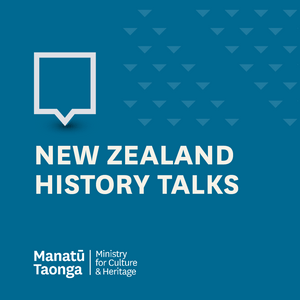
Get the free radio.net app
- Stations and podcasts to bookmark
- Stream via Wi-Fi or Bluetooth
- Supports Carplay & Android Auto
- Many other app features
Get the free radio.net app
- Stations and podcasts to bookmark
- Stream via Wi-Fi or Bluetooth
- Supports Carplay & Android Auto
- Many other app features


New Zealand History
Scan code,
download the app,
start listening.
download the app,
start listening.


